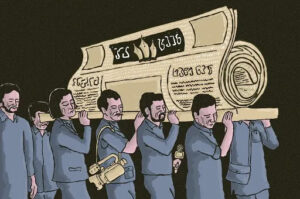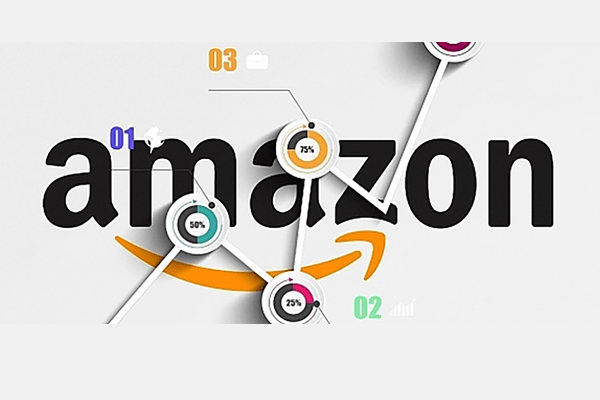
Disappearing media
This is the 199th edition of SHuSH, the official newsletter of the Sutherland House Inc.

Who doesn’t want to be a bestselling author? Now you can do it, too. It’s easy. Publish a book on Amazon, give a couple of hundred dollars to each of a few friends, and have them buy your book, one copy every couple of hours, for twenty-four hours and chances are you’ll wind up a bestseller in some finely sliced Amazon category: #2 in Container Gardening, or #6 in Popular Culture in Social Sciences, or #9 in New Adult & College Romance Fiction.
That’s the reality of Amazon.ca. To reach those heights on Amazon.com, you might have to buy five an hour.
Either way, it’s a small investment if all you want is to more-or-less-legitimately call yourself a bestselling author.
Doesn’t much matter if the book is fifty pages or five hundred, or priced at $3.99 or $39.00. Even if your book is called How to Get a Bigger Butt in Ten Days, all you need is a relatively high turnover of copies in a short period of time and, boom, you’re a star in the “45-minute Health, Fitness & Dieting Short Reads” category.
To get into the top ten overall on Amazon.ca is harder but still within reach of most. Depending on the time of year, 150 copies in 18 hours will probably get you there. It’s still cheaper than many creative writing programs. Two hundred copies and you’re probably in the top three.
For Amazon.com, you’ll require about five to ten times that number of purchases. For someone determined to have ‘bestselling author’ on the resume, it’s not that high a price. Take a screen-shot and you own it forever.
Getting onto the Globe & Mail bestseller list is tougher. It is based on weekly data taken from a broad spectrum of book retailers. It’s not the whole story of the book marketplace—Amazon sales, in particular, are under-represented—but it’s probably the most reliable list we have in Canada.
The difficulty of making the Globe list varies depending on the time of year. Right now we’re at the peak of the book release cycle. There are a lot of books in the market and sales are relatively high. Not Christmas level high, but higher than in the dead of winter or the dog days of summer. I’m told you probably need to sell at least 2,500 copies a week across Canada to get into the top ten right now. In a slow period, you might have a shot with 1,000 sales.
If you’re really ambitious and want to hit the New York Times bestseller list—the most prestigious of them all—you’ll need much more money and a better book. The Times is openly biased in favor of serious books by established authors working with reputable publishing companies and selling in respectable bookstores.
You have to clear those hurdles and sell a minimum of 5,000 and probably closer to 10,000 copies in a week to make the Times’ list. Again, the time of year matters: in peak seasons, 10,000 might not do.
The very bestselling books in Canada move 8,000 to 15,000 copies a week, and those are mostly children’s and self-help titles. In the US, it’s 60,000 to 150,000, and these days they are primarily self-help and Trump books (essentially the same genre, when you think about it).
Most don’t lean enough that they are incapable of feeling conflicted. Writers who care mostly about merit can weep to see their books in remainder bins. Others who want nothing more than a line at the checkout counter can be stung by a negative review. But one way or another, they lean, and their efforts follow their inclinations, as do their results.
Unfortunately for serious writers, whatever their leanings, Amazon has managed to debase both currencies: the bestseller list, and the book review.
With all its obscure categories, and it’s up to the minute scoring, pretty much every author can get a sniff of bestseller status on Amazon. Look at how many second-tier business people on LinkedIn have “bestselling author” under their names, right next to “keynote speaker,” another impressive-sounding but meaningless phrase.
Amazon’s on-site reviews have meanwhile had an inflationary effect on the notion of merit. I randomly searched biographies of Gandhi and looked at more than seventy without finding a single one that was rated less than four out of five stars. Every player’s a winner!
I thought maybe the subject matter was skewing my results so I searched biographies of Hitler. Apparently it’s impossible to get less than four stars writing about him, too.
Think I’m exaggerating? Even Mein Kampf has 4.25 stars on Amazon:

This is the 199th edition of SHuSH, the official newsletter of the Sutherland House Inc.

There was an interesting piece in the New York Times a week or so ago about James Daunt (above), the incoming chief executive of Barnes & Noble, the most important bookstore chain in the English-speaking world. It didn’t quite get to the nub of the matter. Barnes & Noble has

The world of non-fiction from Sutherland House ( and Beyond )